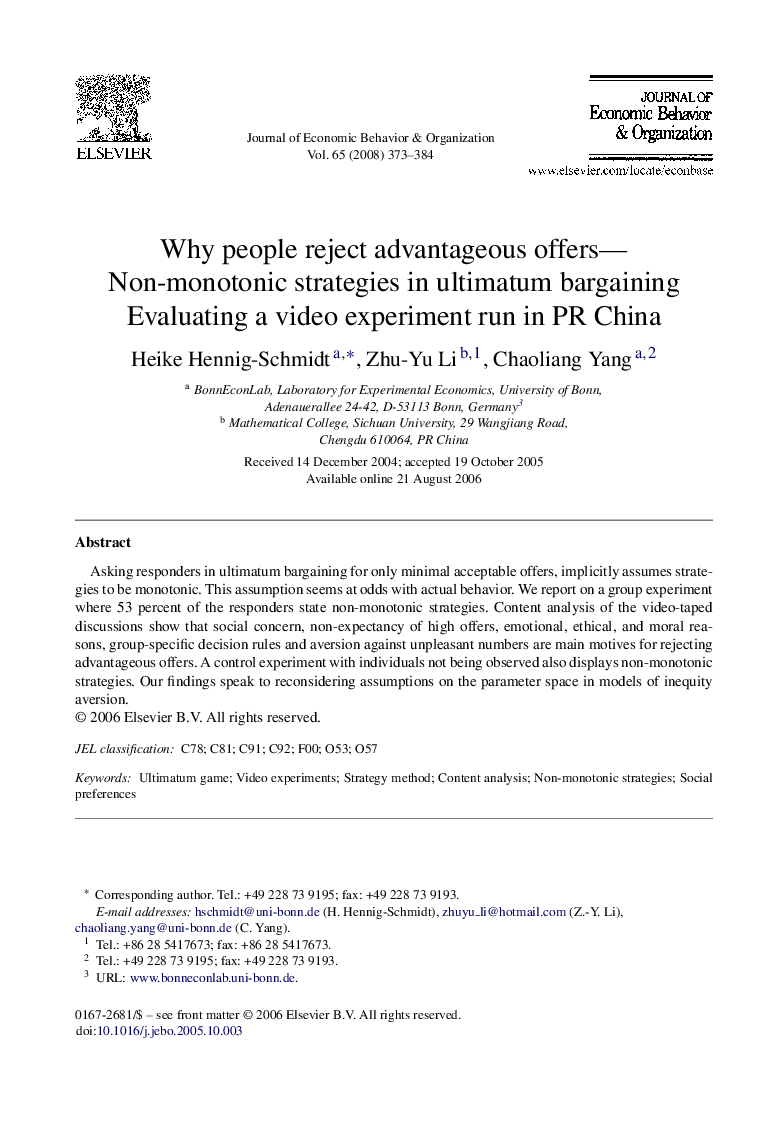| Article ID | Journal | Published Year | Pages | File Type |
|---|---|---|---|---|
| 884574 | Journal of Economic Behavior & Organization | 2008 | 12 Pages |
Abstract
Asking responders in ultimatum bargaining for only minimal acceptable offers, implicitly assumes strategies to be monotonic. This assumption seems at odds with actual behavior. We report on a group experiment where 53 percent of the responders state non-monotonic strategies. Content analysis of the video-taped discussions show that social concern, non-expectancy of high offers, emotional, ethical, and moral reasons, group-specific decision rules and aversion against unpleasant numbers are main motives for rejecting advantageous offers. A control experiment with individuals not being observed also displays non-monotonic strategies. Our findings speak to reconsidering assumptions on the parameter space in models of inequity aversion.
Related Topics
Social Sciences and Humanities
Economics, Econometrics and Finance
Economics and Econometrics
Authors
Heike Hennig-Schmidt, Zhu-Yu Li, Chaoliang Yang,
